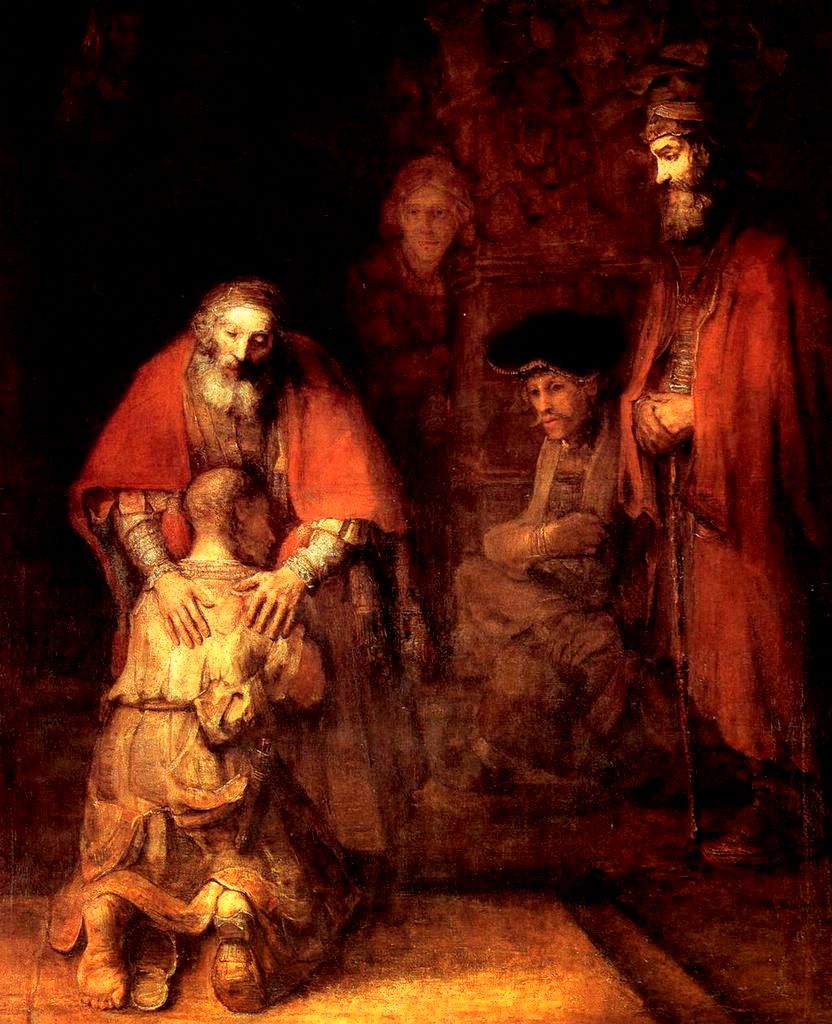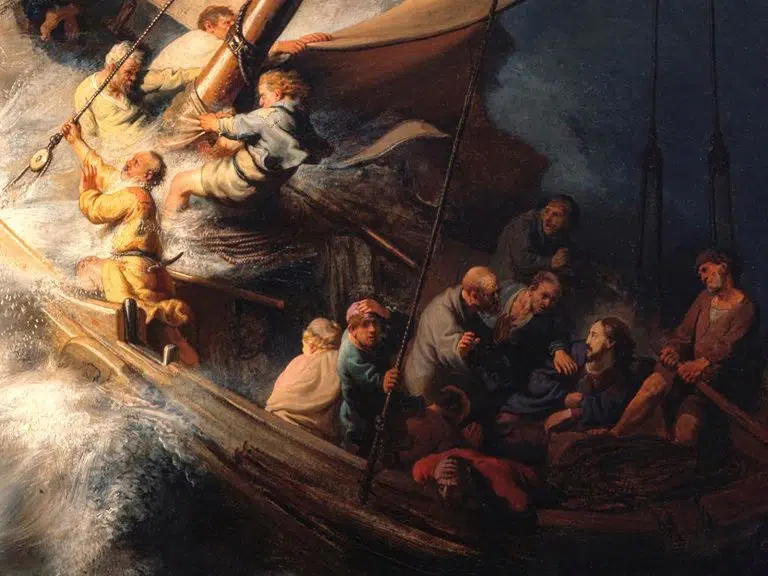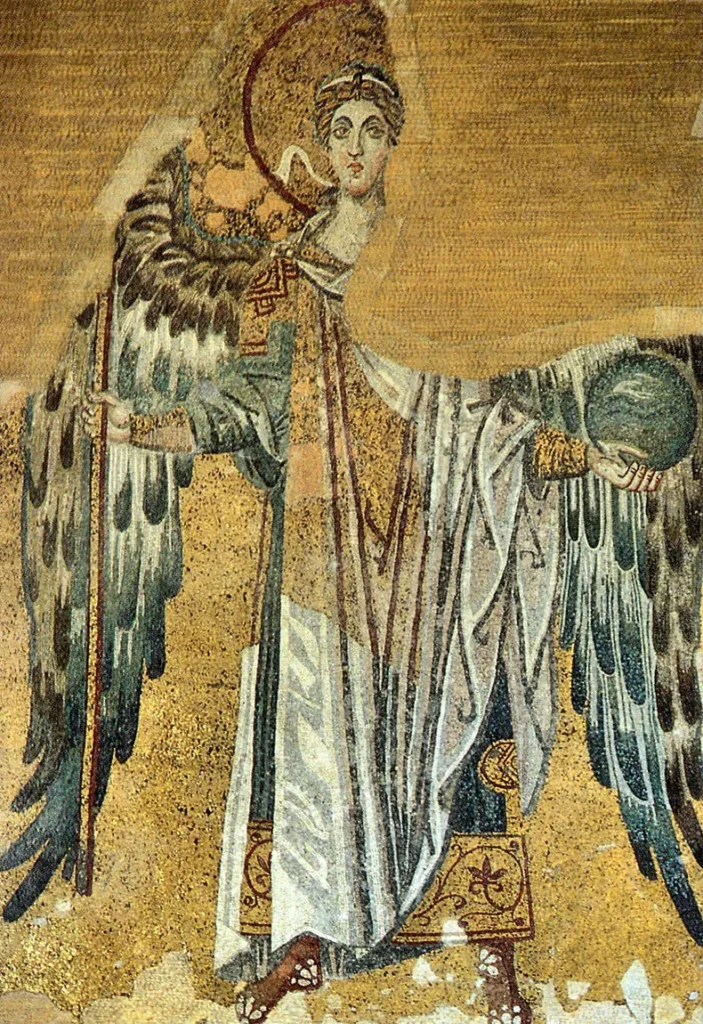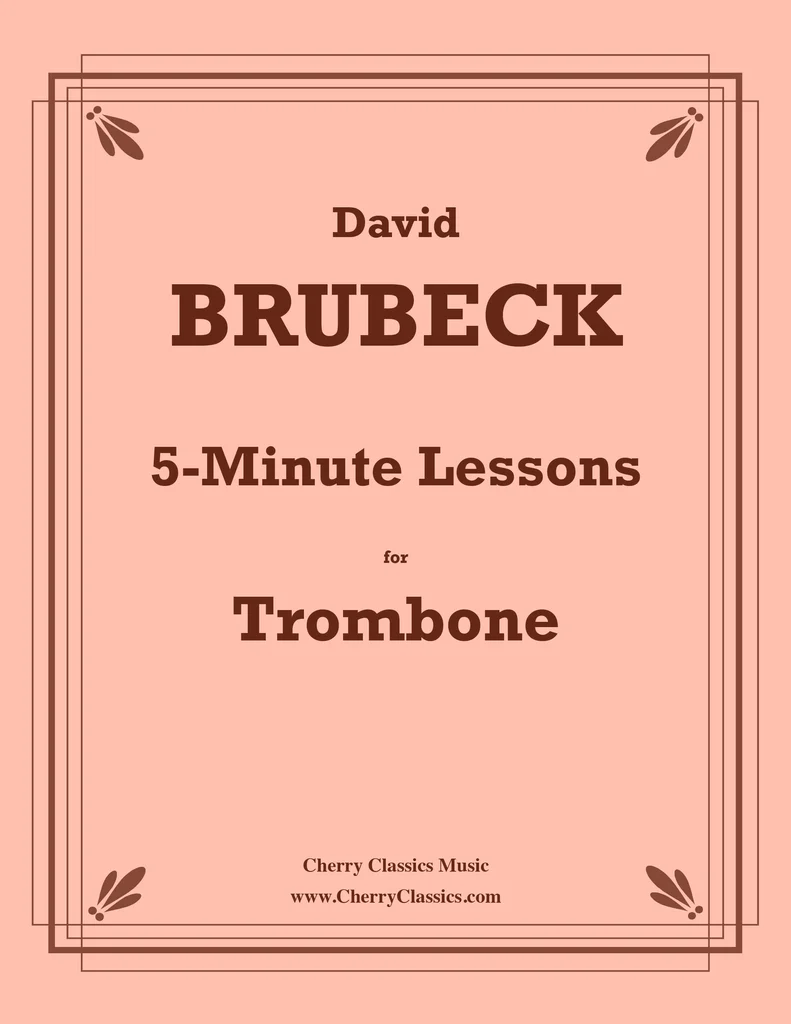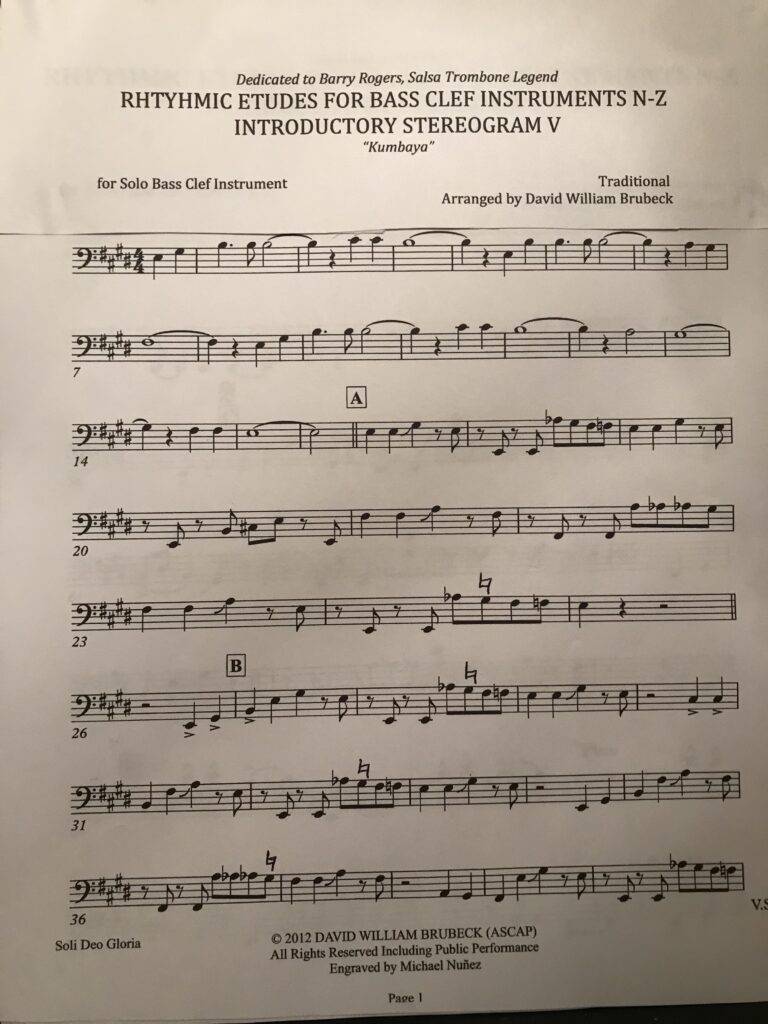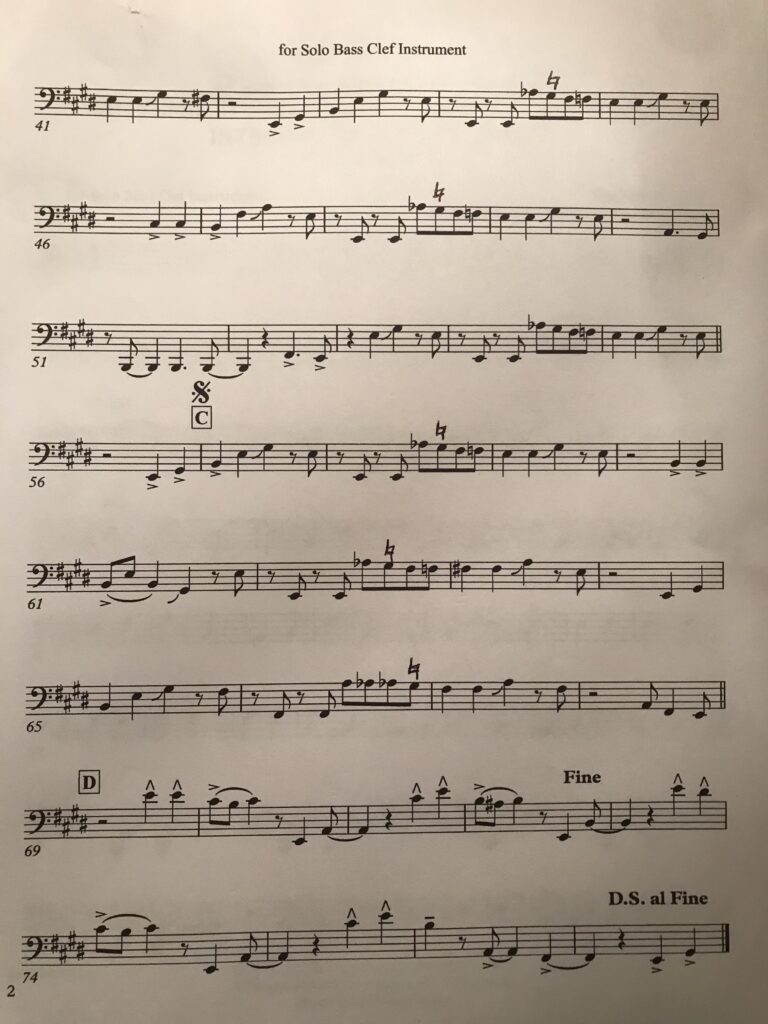La Pedagogía de Arnold Jacobs
Arnold Jacobs ha sido conocido como un excelente intérprete. En su larga e ilustre carrera de interpretaciones y de grabaciones con la Orquesta Sinfónica de Chicago, con su quinteto de metales y como solista, ha llegado a millones de oyentes en muchas generaciones. Otros podrían conocer al señor Jacobs principalmente a través de sus teorías referidas a las funciones respiratorias y pulmonares. Para las compañías de suministros médicos, profesionales en la medicina y académicas por igual, ha sido un investigador dotado y un científico informado. A pesar de estascredenciales impresionantes, se puede decir que sus logros más significativos han sido a través de sus enseñanzas. Con n éxito sin precedentes y abarcando a todos los instrumentos, los alumnos de Arnold Jacobs han sido algunos de los intérpretes más finos en el mundo. Muchos atribuyen todo o gran parte de sus éxitos al señor Jacobs, un hombre que ha sido considerado ser el mejor profesor de instrumentos de metales de todos los tiempos.
“Cuando primeramente saliera “La Pedagogía de Arnold Jacobs” de David Brubeck, yo estaba en la casa del señor Jacobs. Se quedó muy impresionado por ello y me dejó leerlo en el lugar. Como de costumbre, el señor Jacobs estaba en lo correcto, era un artículo increíble, que en realidad, he citado una docena de veces en Canción y Viento; Arnold Jacobs”. David Brubeck ha realizado un trabajo fantástico y esto debe ser de lectura para cualquier persona interesada en las enseñanzas de Arnold Jacob Brian Frederiksen.
La Pedagogía de Arnold Jacobs, Parte 1
Nota de la autora (1991)
Es imposible de capturar la esencia de un profesor tan poderoso e influente como Arnold Jacobs en impresión, dejándolo solo en un espacio limitado aquí. Sin embargo, la percepción dentro de las técnicas y las filosofías de este gran profesor pueden probar un complemento valioso de algunos de los textos previamente escritos por o referidos al señor Jacobs. Como en cualquier método de enseñanzas, existe un peligro referido a la mala interpretación para aquellos que buscan superficialmente recoger una pepita aquí y allí sin entender los principios subyacentes y objetivos. Quizás sea ese miedo el que mantuvo al elocuente señor Jacobs alejado de publicar un texto propio. A pesar del riesgo, siento que el tremendo valor de esta información y de su escasez de impresión, justifica este esquema de su pedagogía. El contenido de estos papeles está basado en mi participación en dos clases magistrales del señor Jacobs por separado, (una en Florida del Sur y una en la Universidad de Nothwestern); leyendo casi todo lo disponible respecto o por él; asistiendo a la Universidad e Northwestern por tres años cuando fuera miembro facultativo y subsecuentemente como miembro facultativo retirado; y en discusiones sobre sus técnicas de enseñanzas con muchos de sus alumnos y otros profesionales, en ambos lugares, dentro y fuera del área de Chicago. Este artículo es disecado a la memoria de Arnold Jacobs.
Nota de la autora (2026). The Spanish Language has been one of the strongest forces in my life, and I am very thankful and gratified to see this important work shared in the language of second-tongue. My Mayan/Mexican/Chicagoan high school Spanish teacher, Leticia Esquivel, would have been proud. As would my boss, Ernie Delgado and his family, at a Mexican restaurant who paid me the $100 per week I needed to purchase my first bass trombone. Not to mention my first composition teacher, Roque Cordero and the whole house full of Panamanians in Normal! Especially my dear friends Giovanni and Maria. In Miami, I have been blessed repeatedly by the language of Spain, and its many beautiful practitioners-by none more so than the Miami Cuban Exile community y mi compadre, Ricardo Pau Llosa. A heartfelt thank you and loving affection to the language of Spain accompanies the love of music in this article.
Arnold Jacobs ha sido conocido como un excelente intérprete. En su larga e ilustre carrera de interpretaciones y de grabaciones con la Orquesta Sinfónica de Chicago, con su quinteto de metales y como solista, ha llegado a millones de oyentes en muchas generaciones. Otros podrían conocer al señorJacobs principalmente a través de sus teorías referidas a las funciones respiratorias y pulmonares. Para las compañías de suministros médicos, profesionales en la medicina y académicas por igual, ha sido un investigador dotado y un científico informado. A pesar de estas credenciales impresionantes, se puede decir que sus logros más significativos han sido a través de sus enseñanzas. Con n éxito sin precedentes y abarcando a todos los instrumentos, los alumnos de Arnold Jacobs han sido algunos de los intérpretes más finos en el mundo. Muchos atribuyen todo o gran parte de sus éxitos al señor Jacobs, un hombre que ha sido considerado ser el mejor profesor de instrumentos de metales de todos los tiempos.
Aunque es más conocido por su experiencia referida a las respiraciones, el señor Jacobs era rápido en señalar que la música era primera, última y siempre. Generalmente llegaba a la conclusión de que “Ellos carecían de Arte”. Creía en que entrenar a un músico de debía ser principalmente a entrenar al instrumentista, sino, en cambio, entrenar al gran artista. Enfatizando a que el alumno sonara en su registro medio, el señor Jacobs los animaba a que se volvieran expresivos e interpretativos o a que seconviertan en “narradores de historias con sonido”. Desde proveerlos con objetivos de excelencia, de una imaginación creativa y de un excelente par de oídos, establecía para los alumnos los máximos estándares posibles. Quizás el concepto musical más importante sea la última parte de su frase famosa,“Viento y Canción”, donde los alumnos son animados a cantar la música en sus mentes mientras interpretan, como les gustaría escucharla sonar.
Cierra tus ojos e imagina el mejor sonido de tuba del mundo. Al describirlo podría llegar a tu mente palabras como “lleno, cálido, redondo y claro”. Ahora, imagina estas “palabras del mejor tubista”interpretando la frase que está en el atril de música delante de tuyo. Continúa escuchando la versión de este intérprete al interpretarlo, concentrándote en esa versión en vez de en la tuya. Esto, en una cáscar de nuez, enfatiza las creencias del señor Jacobs que los pensamientos musicales y el sonido deben ser el ímpetu para en intérprete y que la metodología y la técnica son, por necesidad, sus bio productos. De este modo, desde peoveer un estimulo musical excelente de un intérprete ideal, muchos otros aspectosde intrepetar se caerán.
Avocando que la mejor calidad es lo qie uno debería pretender, el señor Jacobs insiste en que los hábitos deben ser formados sobre la execlencia. Desde usar la imitción y la imaginación creativa de laexcelencia, son establecidos estos objetivos altos. “Interpreta como Bud Herseh lo haría”, ….es unadirectiva común que Jacobs le daba a los alumnos de trompeta. Esto los desafiaba a no solamente recordar a un excelente ejemplo sio aplicar sus imaginaciones de ello a la obra musical en mano. Desde inundar sus mentes con ejemplos excelentes, ellos no podían evitar mejorar lo que salia de las campanas. “Esa es la mejor norta que puedes tocar?”, les pregunta de manera sincera a otros estudiantes. Entonces los instaba a que pretendieran que cada una de las noras valieran 100 dólares y les instruía a que no tocaran más notas de 10 centavos.
En cambio, observando que la parte media del medio la nota larga del trompetista era excelente, el señor Jacobs animaba a los alumnos a que imaginaran lograr esa excelencia al comienzo del sonido. Por lo tanto, enfatizaba el sonido y no el ruido del ataque, diciendo que una nota corta debía ser como una parte del medio de una nota larga. Insistiendo que se le diera una atención extra MUSICAL a las notas del comienzo de las frases, el señor Jacobs lidiaba en términos de un sonido ideal e imaginando objetivos,en vez de la ubicación de la lengua o de la función. Siempre hablando en términos de calidad de sonidosy no de notas largas, el señor Jacobs exponía la creación de la excelencia en el registro medio,expandiéndolo a los otros registro del instrumento.
Muchos de los alumnos de Arnold Jacobs recuentan historias similares de pasar clases enteras prefeccionando una frase simple, con la explicación de que un intérprete debe prestar atención a cada una de las notas de la frase como también de la pintura/imagen completa. Pensando que los sentidos del oyente sienten la dirección de las frases, el intérprete debe ocuparse de cada nota para darle forma a esto. Desde establecer estos estándares altos, elevando las expectativas del alumno y ayudándolo a enfocarse en los estímulos del los objetivos en el cerebro, el señor Jacobs los inspiraba hacia la excelencia en el cerebro inclusive si había mediocridad en los labios. Con su guía, los dos ,eventualmente, concordaban.
Parte 2, Canción y Viento: La Pedagogía de Arnols Jacobs, por David Brubeck
“Cuando primeramente saliera “La Pedagogía de Arnold Jacobs” de David Brubeck, yo estaba en la casa del señor Jacobs. Se quedó muy impresionado por ello y me dejó leerlo en el lugar. Como de costumbre, el señor Jacobs estaba en lo correcto, era un artículo increíble, que en realidad, he citado una docena de veces en Canción y Viento; Arnold Jacobs”. David Brubeck ha realizado un trabajo fantástico y esto debe ser de lectura para cualquier persona interesada en las enseñanzas de Arnold Jacobs.
Brian Frederiksen.
Publicado originalmente en la Revista TUBA, en otoño de 1991, Volumen 19, Número 1.
La foto de Arnold Jacobs es cortesía de www.windsongpress.com
C. 1991 David William Brubeck Todos los derechos reservados. davidbrubeck.com
Arnold Jacobs reivindica interpretar dos tubas a la vez y lo hacía. Como dice él, interpreta la tuba en sus manos y la tuba en su mente/cabeza. Enfocándose el acto de la interpretación en los estímulos provistos por la imaginación musical es la clave de la última parte de su famosa frase “Viento y Canción”. Para ponerlo simple, él defiende que uno cante una melodía/canción en la mente de uno mientras interpreta. “Realiza una afirmación!”, él aconsejaba en sus clases. “No hagas preguntas!”. Sosteniendo que los instrumentos de metal son “estúpidos”, él dice que uno puede sacarle solamente a un instrumento de metal lo que uno le introduce. A diferencia del piano – donde uno puede enfocarlo con la pregunta, “Que nota es esta?”, luego tocar la tecla y recibir una respuesta discreta y definitiva – un instrumento de metal es responsable de dar cualquier número de tonos, dependiendo de la entrada/o lo que ingrese el intérprete. De los tres componentes del sonido o vibración musical, actividad motora y la resonancia, el instrumento de metal solamente provee de laresonancia. Por lo tanto, el tono o (vibración) debe generarse desde el cerebro del intérprete en forma de sonido y no solamente enfocado en la combinación de válvulas o la posición de la vara. Los estudiantes pueden lograr esto desde producir vibraciones con la boquilla o, literalmente, desde cantar la melodía que están a punto de interpretar. Además de mantener en la mente el objetivo de la excelencia y de la interpretación musical, también debe contener el sentido del tono/sonido, el cual puede sobrepasar la “estupidez” inherente del trozo de metal.
El estudio de las enseñanzas y de las técnicas de aprendizaje de Arnold Jacobs terminó siendo tanto innovadoras e inspiradoras así como lo son efectivas. Desde que mucho de su pedagogía lidia con el proceso de adquirir nuevos hábitos, el señor Jacobs ha utilizado muchos procesos psicológicos para alterar los estímulos para lograr las respuestas deseadas. Creyendo que uno puede aprender de manera rápida y más comprensivamente cuando muchas de las facultades de uno se utilizan en la medida de lo posible, el señor Jacobs favorece respecto a un enfoque multi-sensorial de aprendizaje. Cuidándonos al dirigir el fluido de una entrada multi-sensorial, Arnold Jacobs enfatiza que los alumnos deberían concentrarse en sus interpretaciones en ves de en ellos mismos, enfatizando el producto sobre el proceso. Sabiendo que la exageración es una herramienta popular para muchos profesores, el señor Jacobs la usa en ventaja para crear distinciones claras entre variantes sutiles. Además de todas estos enfoques perspicaces, él aplica sus maneras cálidas y amables, su atención devota y su considerable carisma hacia cada estudiante.
“Una vez que se aprende algo, se aprende para siempre”. Es el concepto que usa el señor Jacobs para comenzar sus explicaciones de los hábitos de aprendizaje alternados. Estableciendo que es mucho mejor formar un hábito bueno y correcto que tratar de alterar uno viejo y malo, el señor Jacobs dice que la respuesta condicionada previa seguirá persistiendo a no ser que se altere el estímulo que lo provoca.
“Lo extraño es bueno”, es el comienzo del proceso en el cual el estudiante duda de algo que diferente en el enfoque, en la sensación o en la actividad. Es esta rareza o estímulo alterado lo cual luego es usado para provocar la respuesta deseada, eludiendo la respuesta incorrecta previamente condicionada.
Por ejemplo, n orden de cambiar una respuesta pre condicionada suscitada en un alumno cuando interpreta su instrumento sea él o ella, el señor Jacobs simplemente removía el instrumento y hacía que él o la alumna soplara en el dorso de su mano, vibrara con la boquilla o que respirara en un aparato raro. Desde condicionar la respuesta correcta alejada del instrumento, entonces es trasferible al instrumento. Esto ofrece los beneficios tradicionales de mantener a los ejercicios embotados en la pasión musical, aumentando lo raro, permitiendo un enfoque multi sensorial y evitando en bagaje de condicionamientos previos. Lo más importante es que este enfoque adicional mantiene alejado al intérprete a volver al encasillamiento de sus instrumentos, particularmente valioso para los intérpretes profesionales que deben mantener calendarios ocupados/complicados. De este modo, en vez de alterar un comportamiento malo/erróneo, le señor Jacobs defiende que uno simplemente puede aprender un nuevo y correcto comportamiento que lo suplante desde alterar/cambiar el estímulo y eventualmente transferir la respuesta de vuelta al instrumento. Mientras tanto, el antiguo e indeseado comportamiento se auto extinguirá desde dejar de utilizarlo.
El elemento clave aquí es el enfoque multi sensorial del señor Jacobs. Mantenerse en la simpleza es la teoría que desde experimentar algo con más de una capacidad sensorial y desde más de una manera, uno puede obtener una mayor comprensión
El señor Jacobs orientaba a sus alumnos a que vieran/visualizaran los efectos de sus aires/soplidos al hacer flotar una pelota de ping pong en un tubo o inflando una bolsa de respiraciones/anestesia. Ellos eran animados a sentir sus respiraciones como aire pasando por entre sus labios o como aire en movimiento soplado en el dorso de sus manos. Los inspiraba a que escucharan el sonido particular de una inhalación apropiada. Aparte, el señor Jacobs a menudo los animaba a un tipo de “propiocepción” artificial. Desde que en realidad, uno no puede sentir el aire propio una vez que abandona nuestro cuerpo, el señor Jacobs hacía que muchos de sus alumnos movieran sus manos hacia adentro y hacia afuera como si estuvieran succionando aire (hacia adentro) y soplando aire (hacia afuera) desde la respiración, como si fuera el aire en sí mismo.
De manera similar, desde que uno no puede sentir el diafragma dentro del cuerpo, (sabiendo que es posible sentir su efecto desde desplazamientos internos o desde el uso de los nervios sensoriales a su alrededor pero no dentro del mismo), podía hacerle mover a sus alumnos una mano hacia arriba y hacia debajo de sus esternones y de este modo, simular el movimiento del diafragma dentro del cuerpo. Esta sustitución se mueve en simpatía con la original. Como en los enfoques multi sensoriales anteriores, esto permite una perspectiva y experiencia adicional lo que aumenta la velocidad y la profundidad de a comprensión. Es importante recordar que estos enfoques son simplemente herramientas y que el señor Jacobs, rápidamente reenfoca al estudiante hacia el pensamiento musical.
El señor Jacobs parecía considerar a la exageración como particularmente valiosa en el estudio aplicado, donde un cambio sutil podía tener un efecto tremendo. Al lidiar con un aspecto sutil de la pedagogía, a menudo encontraba necesario polarizar con dos tonos de grises hasta que fueran extremos blancos o negros. A menudo, la diferencia entre la manera correcta de hacer algo y el intento actual del alumno es muy delgada pero el alumno es incapaz de reconocer la diferencia. En una instancia en particular el señor Jacobs introducía al alumno a que pronunciara “Kii-Tii-Yii” y luego a que tomara una respiración seguida de “Oh-Ah-Ooh” y respirar nuevamente. Esto ilustra los dos extremos de la resistencia de la cavidad oral. La diferencia leve entre el sonido A (día en inglés “ei”) es difícil diferenciarla de la sílaba “AH” desde marcar un contraste significante en el sonido de uno con un instrumentos de metal. Son embargo, uno puede sentir fácilmente y escuchar las distinciones vastas entre “Iii, y Ooh.
Parte 3
Otro asunto con la pedagogía de Arnold Jacobs es la de eliminar el auto análisis agudo del alumno y la concentración en la actividad motora (proceso) mientras se interpreta. En cambio, prefería que el alumno se concentrara en el mensaje musical que deseaban o querían transmitir o hacia el sonido deseado o interpretación (producto). El señor Jacobs sostiene que las facultades conscientes y analíticas del cerebro deben lidiar con los desafíos den entorno externo o del mundo a nuestro alrededor. Desde que este proceso de pensamiento racional está creado para ayudarnos con los factores externos, los procesos de pensamiento subconscientes han sido creados para gobernar nuestros procesos internos tal como regular nuestro corazón y las respiraciones las 24 horas del día sin un control consciente. Este subconsciente es de igual manera efectivo ya sea para el uso del mantenimiento del balance, hablar, conducir o interpretar la tuba. Aquí es cuando los alumnos tratan de dictar la función en vez de simplemente proveer del estímulo apropiado para lograr los resultados deseados, metiéndose en problemas.
El señor Jacobs simplifica este concepto desde comparar al cuerpo con un automóvil nuevo con el tanque lleno de combustible. En orden de utilizar el coche, uno no debe meterse debajo del capó del mismo, hacer andar los pistones, hacer circular el líquido refrigerante o ponerle lubricantes: estas cosas ya han sido agregadas y ordenadas por los controles. Uno solo debe meterse en ellos e indicarles a donde ir. Dehecho, el señor Jacobs, sostiene que es imposible para la mente consciente controlar de manera exitosa las millones de células, las fibras musculares complejas y las neuronas que hacen que nuestros cuerpos estén en movimiento. Por lo tanto, uno debe des enfatizar los mecanismos del auto análisis y solamente interpretar utilizando los estímulos del resultado final deseado para obtener la respuesta apropiada. “Es solo cuestión de la simpleza”, de acuerdo con Jake y con “la complejidad”.
Un aspecto interesante de la experiencia musical temprana del señor Jacobs es que (por un largo lapso de tiempo) aprendiera a interpretar de oído y estudiar solfeo y voz. También experimentó de una estancia prolongada en el hospital en su juventud, en donde, durante su estadía, vibrar la boquilla ha sido el único contacto con el instrumento.
Estas experiencias han ayudado a alentar su defensa hacia desarrollar el “oído interno” – la habilidad de escuchar la música en la cabeza/mente de uno mismo y de enfocarse en el sonido. El primer paso para desarrollar ese oído interno es la “audición posterior”, la habilidad de escuchar la nota luego de que esta cese de vibrar. El señor Jacobs desarrolló esta habilidad desde interpretar una nota en el piano y permitir el silencio luego de esta; sin requerir que el alumno coincida con ella, sino que simplemente la asimilara.
Eventualmente esto guía hacia una “pre-escucha” de las notas antes que uno las interprete, como también la habilidad de enfocarse/concentrarse en el objetivo de excelencia de uno en vez de la interpretación propia. Desde combinar esto con una imaginación activa y creativa y modelos pasados de excelencia, uno es capaz de proyectar un objetivo mental alucinante. La audición posterior o post escucha complementa el efecto de escuchar la melodía en tu mente mientras interpretas. Te permite rebobinar la grabación y como coordina tu rendición de tu objetivo musical y al mantenerte distraído del auto análisis y del desorden en tu mente mientras interpretas. Desde imitar el mejor sonido, uno estará ayudando en buscar la mejor manera de lograrlo. EN palabras del señor Jacobs, “estabiliza la música y los músculos la seguirán”.
“Los malos sonidos o sonidos pobres se pueden transformar en sonido buenos”, animaba el señor Jacobs “el silencio no”.
Este comentario era típico del ánimo/aliento del profesor Jacobs, con su comportamiento encantador e inteligente. Comenzaba muchas de sus clínicas adulando/elogiando al intérprete y diciendo que había muy poco que arreglar. Constantemente los proveía con refuerzos muy positivos, manteniendo el contacto visual y ocasionalmente, palmeándolos para reenfocar sus atenciones, el señor Jacobs mostraba claramente su absorción al enseñar. Su dedicación para con el alumno y con el proceso de enseñanzas y de aprendizaje era enorme.
El señor Jacobs creía que uno no debería establecer límites referidos a la
tamaña computadora mental que es el cerebro y lo que puede llegar a
hacer. Como resultado, ha transformado a muchos alumnos de manera
exitosa quienes habían sido considerados sin esperanza por otros
profesores. Les decía a sus alumnos que fueran positivos al proyectar
sus mensajes musicales y que pensaran que serían correctos en vez de
incorrectos. Muchos de sus alumnos nuevos eran recomendados por
alumnos antiguos y ese poderoso respaldo puede ser atribuido tanto a
sus maneras/formas de “doctor” como a sus resultados.
Parte 4
Para muchos instrumentistas de viento, el nombre Arnold Jacobs es
sinónimo del estudio de las respiraciones. Desde un contacto con sus
alumnos y los alumnos de los alumnos, muchos se lo atribuyen a sus
entusiasmados con conceptos inusuales. De repente los torsos de los
colegas se expandían en anchuras voluminosas al escuchar “respira para
expandir”, justo antes de que ellos metieran sus bocas en la bolsa de
respiraciones. Los tubos de respiraciones y las vocales abiertas
abundaban mientras que los discípulos buscaban la máxima succión con
los mínimos esfuerzos. Uno era advertido respecto al uso indebido del
aparato respiratorio y se le decía que se volvieran “altos y flácidos”. Un
se familiarizaba con la capacidad de los pulmones en reposo y con los
dispositivos raros/extraños, maravillados por los ejercicios extraños y
medidores de vacío solo para preguntarse si tal vez lo funcional había
superado a los musical.
“Respirar para expandir” era una represión común hacia los estudiantes
que mostraban todos los signos externos visibles de tomar una
respiración pero en verdad, succionaban cantidades muy modestas de
aire. Al sacar hacia afuera el estómago (barriga) y elevar sus pechos,
estos estudiantes revertían la acción y el acto al pensar que debían
expandir en orden de respirar. Manteniendo su nariz cerrada así como su
boca, el señor Jacobs sobresale su estómago y expande su pecho para
dar a entender su punto de que estas gesticulaciones dramáticas pueden
ser logradas sin tomar nada de aire. Explicando que el desplazamiento
del estómago es producto de la inhalación/inspiración, él defiende el
enfoque/concentración sobre la cantidad de aire en movimiento.
Dentro de la frase de “succión máxima con la mínima fricción”, el señor
Jacobs ayuda a sus alumnos a tomar grandes cantidades de aire y
liberarlo como viento (aire en movimiento) en vez de presión. Volviendo
a su enfoque multi sensorial, él sostiene que los estudiantes respiren
desde los labios, lo que provoca que se sienta el aire al paras por entre
ellos.
El dispositivo de vacío dirigido hacia la boca abierta de uno durante el
momento de la inhalación, una bolsa de respiración la cual se expande
con cada exhalación o una pelota de ping pong mantenida en el tubo,
suspendida por el movimiento constante del viento en ambas
direcciones, sirve como ayuda visual para ayudar a detectar el volumen
del aire como viento. Manteniendo la mano de uno mismo delante de la
boca mientras se expira/sopla, provee de una sensación táctil de la
exhalación del viento mientras que los lados de la boca (comisuras) y la
garganta pueden adherirse a los labios al sentir el paso del aire entrante.
Esta información de las sensaciones le permite al cuerpo regular la
función mientras el intérprete se concentra en la música.
Mientras que las opciones arriba mencionadas son caminos o maneras
de sentir al aire como viento libre y fluido, la tensión presurizada
causando la corriente/columna de aire es mucho más fácil de sentirla
internamente. Para ilustrar la distinción entre las dos, el señor Jacobs
hace que sus alumnos ubiquen sus dedos índices en sus labios, sellarlos y
luego soplar en contra de ellos. Cuando el dedo es liberado, hay un
estallido (Pop!) suave. Esta presión en intérpretes de instrumentos de
viento metal es similar a la presión ejercida como cuando tosemos,
cuando inflamos un globo particularmente rígido o similar a la presión
en una cámara de aire. El viento como aire libre y fluido es ilustrado de
manera diferente. El señor Jacobs hacía que los alumnos tomaran una
respiración normal y que luego permitir que el aire se escapara a través
de los labios, sellándolos por un segundo con el dedo índice y luego
removiendo el dedo.
La presurización al interpretar los instrumentos de viento metal es
peligroso debido a que cada musculatura utilizada para regular el aire y
por lo tanto presurizarlo, es más poderosa que la musculatura
originando el aire en sí mismo. Sella tus labios de manera activa y luego
sopla tratando de separarlos. Es imposible. Lo mismo sucede con una
garganta cerrada. De manera similar, el pecho y los músculos
abdominales de la persona son capaces de soportar el peso de 45 kilos
de una persona parada sobre ellos mientras que los pulmones pueden
generar aproximadamente de 900 gramos a 1400 gramos de presión.
Los síntomas de interpretar con aire presurizado son: ataques tardíos o
retrasados (las presiones llevan tiempo para superar las válvulas
biológicas que han sido situadas en sus posiciones y las válvulas crecen
de manera fuerte con el uso y por ello causando mayores retrasos, una
calidad de sonido dura (cuando los labios sirven como un punto de
resistencia en vez de una fuente de resonancia); y excesivos esfuerzos al
interpretar (tensiones isométricas y aire presurizado con resistencia
muscular).
La musculatura del sistema respiratorio tiene por lo menos tres
funciones distintas. A menudo se encuentra a los alumnos en el proceso
de una de estas tres funciones musculares, creando tensiones y
confusiones. Aparte de las respiraciones, estos músculos son utilizados
para crear presiones internas útiles en los partos, en la defecación y en la
maniobra Valsalva (similar a la maniobra Heimlich). Finalmente, estas
son utilizadas con el propósito de la estabilización, mientras que uno se
inclina constantemente hacia la izquierda y hacia la derecha, hacia a
delante y hacia atrás y siendo ajustado nuevamente al centro mediante
los músculos abdominales, los intercostales y los músculos de la espalda.
Como intérpretes de instrumentos de viento metal nos enfocamos de
manera incorrecta en la activar estos músculos, tensiones y presiones
que de manera adversa afectan la producción sonora. Para demostrar los
resultados de la tensión muscular sobre la producción sonora, el señor
Jacobs podía comenzar haciendo que el alumno mantuviese una nota
larga. Mientras que el alumno continuaba interpretando, el señor Jacobs
le pedía que pusiera firmes los bíceps y los tríceps. Esta tensión muscular
típicamente tenía un efecto adverso en la producción sonora. Desde
comparar esto con la tensión muscular localizada en cualquier otra parte
del cuerpo y particularmente en los músculos utilizados para las
respiraciones, el señor Jacobs defiende un mecanismo de respiraciones
relajadas.
El principal músculo de las respiraciones es el diafragma y a pesar de que
los músculos de la correa también son capaces de inspirar (respiración
clavicular), para el propósito de la interpretación de instrumentos de
viento metal son relativamente insignificantes.
Por su forma de curva invertida, justo debajo del corazón y los
pulmones, el diafragma se aplana al entrar en contacto, por los tanto
bajando las presiones de aire en los pulmones. Esto provoca una oleada
de flujo hacia el interior o un aire externo hasta que la presión sea
equilibrada y una presión intraoral en aumento a medida que el
diafragma desplaza su contenido hacia afuera. Es interesante notar que
el rango de movimiento del diafragma solamente es capaz de moverse
en esta dirección (contrayendo, por lo tanto tirando los pulmones hacia
abajo) y no puede ser utilizado de manera activa en la expiración. El
retroceso natural del diafragma (relajación) el asentamiento de la caja
torácica (debido a la gravedad y su elasticidad natural), y los músculos
activos de la exhalación (los abdominales, los intercostales y en menor
medida los músculos de la espalda) brindan la expiración. En el proceso
de la expiración, el diafragma solo puede ser utilizado para aplicar los
frenos u ofrecer una oposición al tensado de los músculos intercostales y
abdominales.
El señor Jacobs anima a la máxima flexibilidad del diafragma,
comparándolo con un pistón. Los problemas llegan cuando los músculos
abdominales y el diafragma se enfrentan entre sí ya sea en la expiración
como en la inhalación. El señor Jacobs compara esta musculatura
respiratoria tensa del intérprete de instrumentos de viento metal con las
desventajas similares a las del arco tenso de un violinista. La resistencia
de uno impide l efectividad y el funcionamiento óptimo del otro. Por lo
tanto, tensar o endurecer los músculos abdominales antes o durante la
inspiración causa que el diafragma funciones de manera más dura y que
limite su movimiento tanto como un diafragma activado impide el
proceso de la expiración. En orden de combatir esto, el señor Jacobs, de
manera activa, podía empujar en el estómago/barriga del alumno quien
estuviera pensando en hacer esto al exhalar, por lo tanto, animando a la
flexibilidad del diafragma/pares de músculos del estómago. Igualando a
estos músculos con otro conjunto de pares emparejados, el señor Jacobs
brinda el ejemplo de tratar de levantar algo con los bíceps y tríceps
tensados en oposición.
Parte 5
Mientras que algunos creen que el señor Jacobs defendía a las respiraciones completas, este no es precisamente el caso.
Él abogaba/defendía una respiración confortable o como un 80% de
nuestra capacidad pulmonar. Determinando la capacidad pulmonar/vital
de la persona (o su volumen pulmonar en litros), puede ser realizado
desde mediciones o por estimaciones basadas en la edad de la persona,
el peso de la misma y el sexo. Luego de medir esto, el señor Jacobs le
permitía a la persona llenar su capacidad de aire y luego interpretar.
Prontamente se daban cuenta de que esta es una sensación a la cual no
estaban acostumbrados debido a que habían estando respirando de
manera regular a un nivel el cual no estaba ni cerca de sus capacidades
máximas. En vez de estar enfocados en respiraciones altas, medias, bajas
e inclusive una respiración de Yoga, el profesor Jacobs tornaba a lo
científico y a lo medible. El punto que argumentaba era que lo que
importaba era la succión y el soplido externo del máximo aire posible y
dejar que el cuerpo se preocupara por sus movimientos.
Nuevamente aquí, enfatizaba el objetivo y no trataba de regular la
función (tal como la ubicación del aire). De acuerdo con él, la anatomía
de los pulmones no abala la teoría de que el aire debe entrar e ir a solo
un área o la de preferir ubicarse en un área específica primeramente.
Esto refuta no solamente a esos profesores que predican una respiración
baja primero sino también a aquellos que insisten en que tu pecho no se
mueva al expandirte – la idea anterior no sigue el camino de los tubos
bronquiales y este último restringe la habilidad de uno de succionar aire.
El “apoyo” es otra mala interpretación que el señor Jacobs dice que es en
gran medida responsable de la preocupación de los estudiantes y una
tensión muscular mal dirigida. “El apoyo es una respiración soplada”
dice, “No una tención muscular en el cuerpo, sino movimiento de aire.
Apoyo en la boca (donde el aire pasa a través de los labios y puede ser
sentido)” decía y “No en la barriga (músculos abdominales)”.
Si uno sopla tan lejos como puede y luego se relaja, parte del aire
regresa a los pulmones. De manera similar, cuando un inhala lo más que
puede y luego se relaja, un poco de aire se escapará. Esta capacidad
pulmonar en reposo de presiones cero es el punto entre los dos
extremos. Si uno toma una respiración completa, luego la presión
natural de relajación (la tendencia para la elasticidad de los pulmones, el
empuje hacia debajo de la gravedad del pecho, el retroceso natural del
diafragma y la ecualización de la presión) estará en su punto culmine. Al
escaparse el aire, la presión se reduce gradualmente hasta que uno
llegue por dejado de reposo de la capacidad pulmonar donde la mayor
presión es requerida para el movimiento del aire.
El esfuerzo activo de la exhalación es solo requerida cuando las
presiones orales requeridas son mayores a las presiones de relajación.
Por lo tanto, cuanto menor presión se requiera, mayor será la porción de
soplido que se podrá utilizar. Si se necesita una gran presión, se puede
utilizar un porcentaje menor de aire hasta que la presión de relajación
sea menor que la requerida. (Al decrecer la presión de relajación, ls
presiones internas crecen con un sonido estable mantenido a una
dinámica requerida). El rango más efectivo de capacidad en el cual uno
opera confortablemente, como sostiene el señor Jacobs, es entre el 80%
y el 25%. Debajo del 25% uno se introduce en las curvas negativas de
respiración y se requiere una mayor presión de la que deseada. El señor
Jacobs animaba a sus alumnos a que respiraran mucho aire (es gratis) y
para evitar caer más abajo del 30%, donde tendrían que estar trabajando
demasiado duro y usar más presión para mover el aire.
Arnold Jacobs combinaba años de interpretaciones profesionales a los
niveles más altos, interacciones con muchos de los mejores músicos de
nuestra época y una curiosidad científica expansiva que abarco toda su
vida, con el conocimiento de la psicología y de la naturaleza humana que
un profesor experimentado a menudo desarrolla. Como resultado, ha
construido una pedagogía notable y comprensiva que es tan simple
como su éxito. Mediante el empleo de varios conceptos perspicaces e
innovadores y enfocándose en los fundamentos del viento y de la
canción, su enfoque ofrece una filosofía la cual puede utilizar mucho más
allá de su estudio.
Cuando “La Pedagogía de Arnold JAcobs” de David Brubeck saliera, yo
estaba en la casa de Jacobs. Se quedó muy impresionado al respecto y
me hizo leerlo en el acto. Como de costumbre, el señor Jacobs estaba en
lo cierto, era un artículo increíble que eventualmente he usado docenas
de veces en “Canción y Viento” de Arnold Jacobs. David Brubeck ha
hecho un excelente trabajo y este debe ser leído por cada una de las
personas interesadas en las enseñanzas de Arnold Jacobs”. Brian
Frederiksen.




